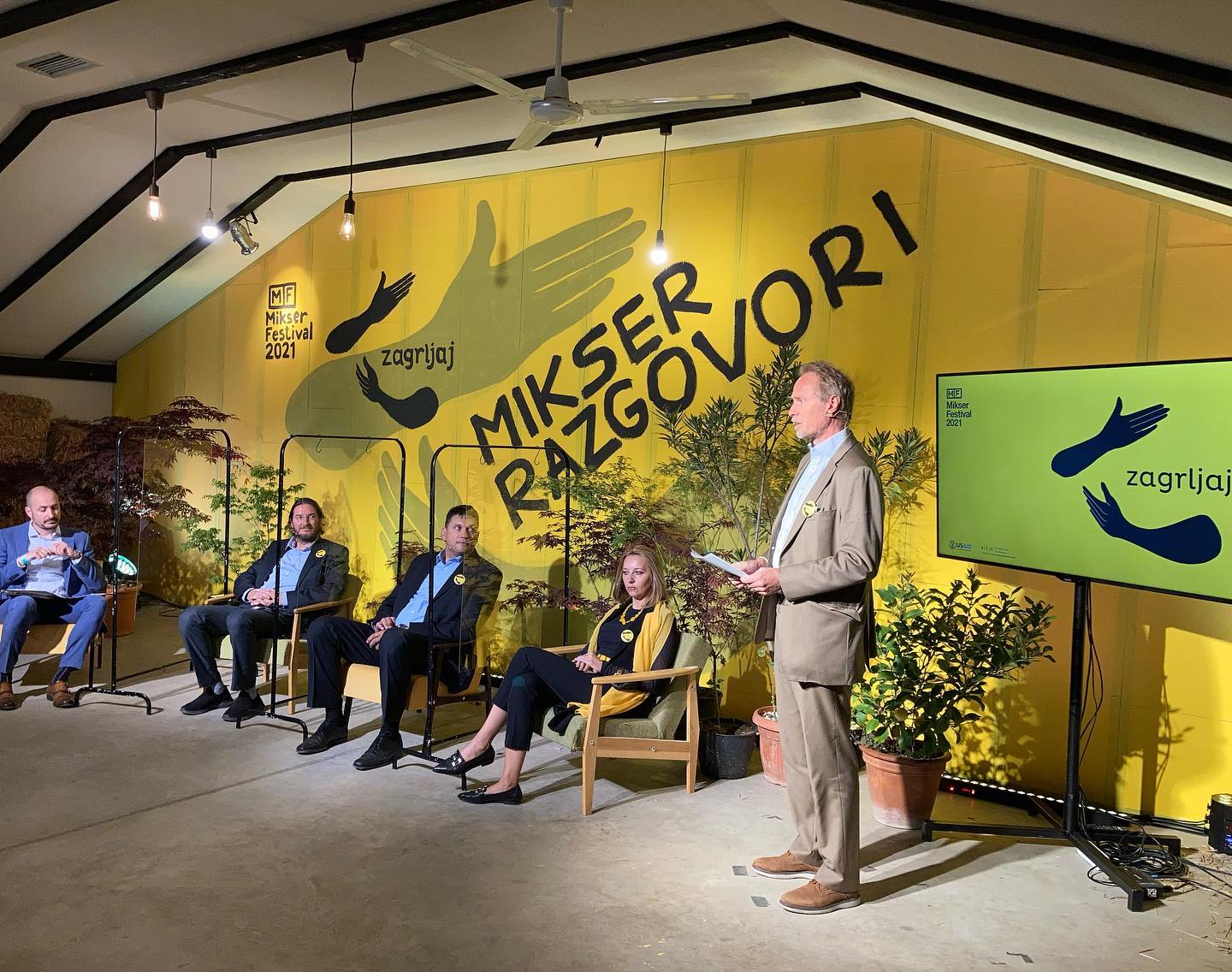For several years, the Mikser organization has been cooperating with the EU Delegation in Serbia on projects to raise awareness about environmental protection. The programs of the Mikser Festival realized in cooperation with the EU Delegation in Serbia include two-panel discussions and one exhibition that promote and bring closer the values of the EU in Serbia.

“Green Agenda for the Balkans” was a panel held on 26 May examining the capacities of the Serbian and regional economy in the implementation of the European Green Deal and the benefits for the development of the private and public sectors. One of the panelists was Antoine Avignon, Program Manager for Environment and Climate Change from the EU Delegation.
The Green Recovery Study presented on 28 May addressed the EU’s 2030 climate targets and the implementation of the European Green Deal standards as key guidelines for directing investment towards sustainable projects and activities to make our economy and society, especially the health system, more resilient to climate change and other challenges. This panel discussion was partly co-financed from the EU project for a better environment, and the presented Study was created with the cooperation of the EU Delegation and experts from the project. Introduction word was given by Yngve Engström, Head of Cooperation at EU Delegation and Antoine Avignon, Programme manager for Climate change at EU Delegation in Serbia was amongst panelists.
As noted on the panel, demand for green finance will certainly increase significantly in Serbia as they transition to an inclusive, circular economy with low carbon emissions progresses. Despite the fact that the COVID-19 pandemic has recently led to delays and reduced share of green investments, this development will guide both the policy of action and markets.
When it comes to policy, the Green Deal of the European Union, as well as the Green Agenda for the Western Balkans related to it will provide the basis for Serbia’s development strategy in the future, as long as this country continues to harmonize its (environmental) policies with EU policies. Markets will when enabled to function properly, grow larger measures to encourage the transition to a green economy in the future, when investing in energy efficiency and sustainability of resource use, renewable energy sources, and other greens technologies become more profitable than investing in previous conventional ones alternative.